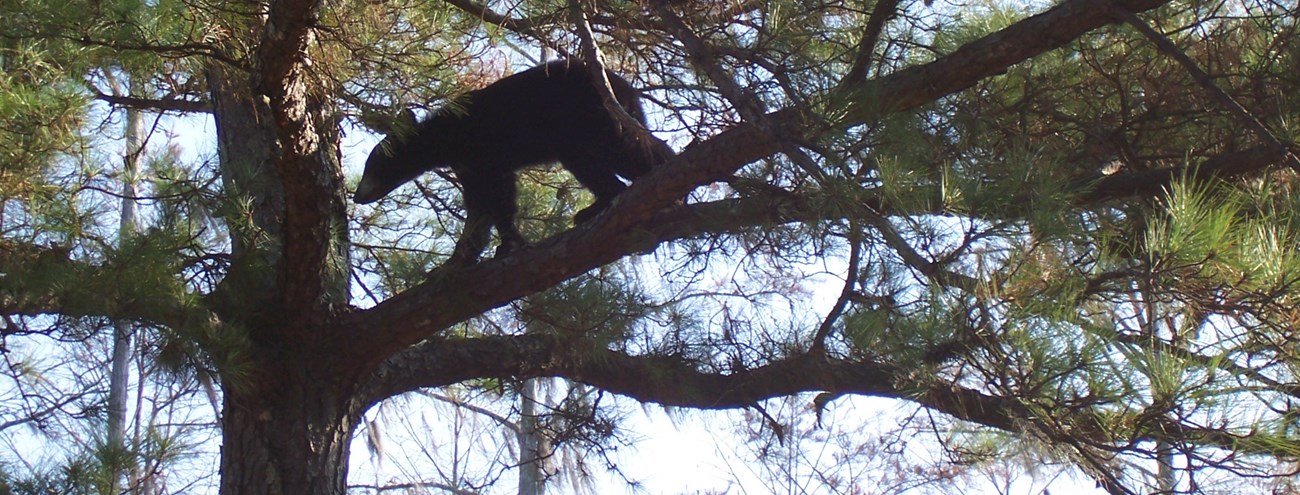
Florida Fish and Wildlife Conservation Commission (cropped) Black bears are the largest land mammals in Florida and are the only species of bear in the southeastern United States. Adults can weigh anywhere from 200 to 500 pounds and can be five to six feet long. Just like humans, these mammals walk flat-footed with all five toes on the ground, giving them a distinctive paw print. Generally covered in black fur, they often have a brown or tan snout and almost always have a white patch of fur on their chest, called a blaze. Ursus americanus, or the American black bear, has historically roamed most of North America. As the human population expanded, the bear population plummeted. Many bears were hunted and hunts continue today, but the biggest cause for their decline is habitat loss. Today, they occupy about half of their historic range in the United States and can be found in both northwest Florida and southern Mississippi, and have been observed in the Naval Live Oaks area of Gulf Islands National Seashore. Contrary to popular belief, bears are not true hibernators like some other smaller mammals. True hibernators lower their breathing, heart rate, and body temperature significantly. Black bears, on the other hand, enter what is known as “winter lethargy.” Their sleep is not nearly as deep as mammals in true hibernation. A noise outside the den can easily wake up these sleeping bears. While in this period of winter lethargy, the heart rate slows down considerably, but the body temperature remains relatively constant. Faster than even the fastest man on Earth, black bears do not usually use their speed to capture prey. Instead, they tend to be scavengers. Road kill, berries, insects, and even human trash are all favorite foods of this generalist feeding behavior. Unfortunately, some bears have developed such a taste for human food that they have begun to roam into neighborhoods knocking over trash cans in search of their next snack. This lack of fear is incredibly dangerous, not only for the people living in these neighborhoods, but for the bears, as well. |
Last updated: October 25, 2018
